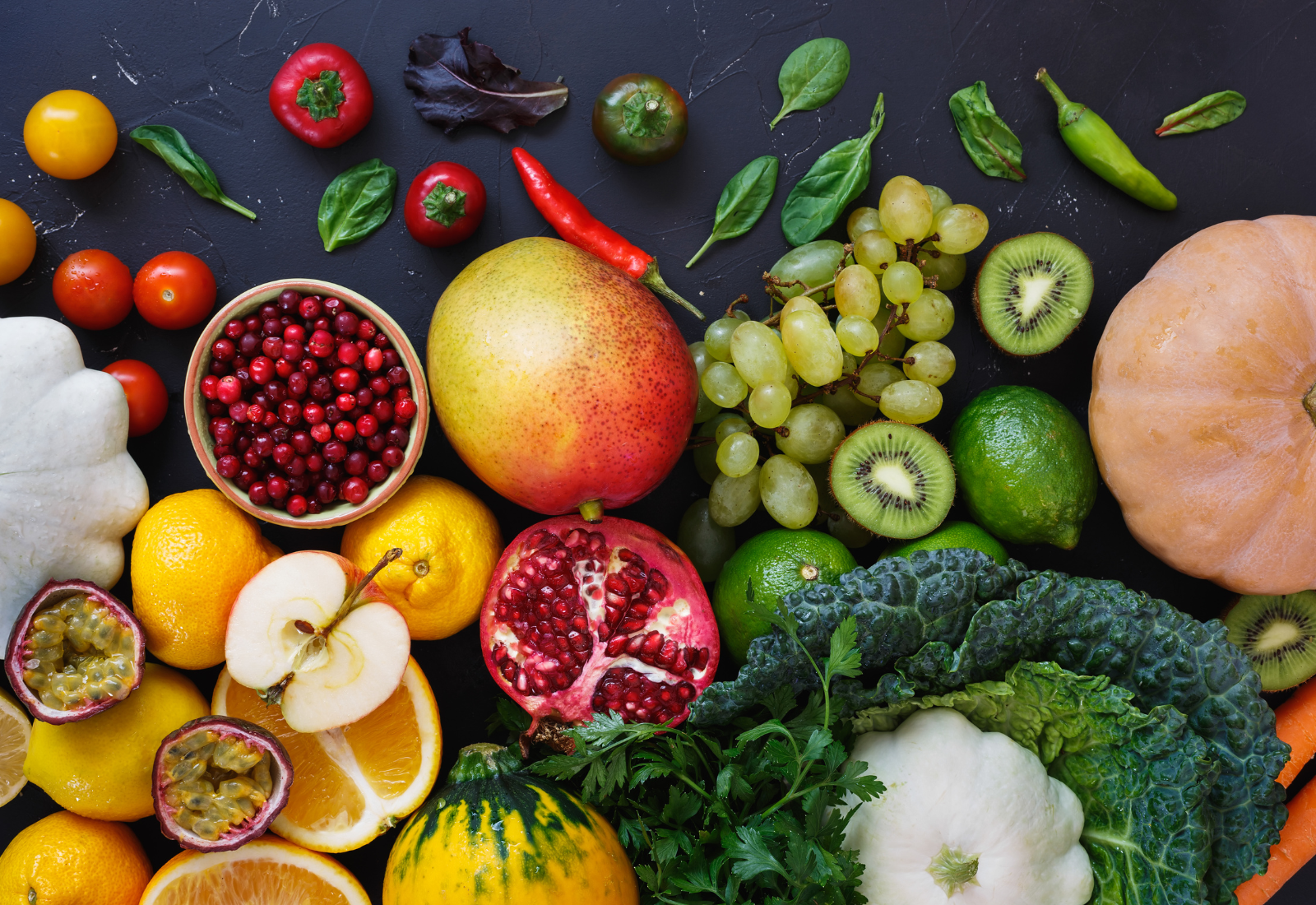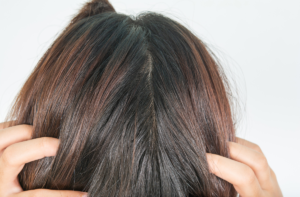Hair loss can be a distressing experience, impacting not only your physical appearance but also your confidence and self-esteem. While there are various factors that contribute to hair loss, one often overlooked aspect is nutritional deficiencies. Our hair health is intricately linked to our overall well-being, and inadequate nutrition can manifest in various forms, including hair thinning and shedding. In this guide, we’ll explore the connection between nutritional deficiencies and hair loss, as well as strategies and hair loss solutions to address and prevent this issue.
Understanding Nutritional Deficiencies
Our hair follicles require a range of essential nutrients to grow and maintain healthy hair. When our bodies lack these vital nutrients, it can disrupt the hair growth cycle, leading to hair loss. Some of the key nutrients involved in hair health include:
1. Vitamin D
Vitamin D is often referred to as the “sunshine vitamin” because our bodies produce it in response to sunlight exposure. Beyond its well-known role in bone health, vitamin D also exerts significant influence over our hair follicles. It plays a pivotal role in the hair follicle cycling process, which includes the growth (anagen), regression (catagen), and resting (telogen) phases. Research suggests that adequate levels of vitamin D may help stimulate hair growth by prolonging the anagen phase and preventing premature entry into the telogen phase.
2. Iron
Iron deficiency is one of the most common nutritional deficiencies worldwide. In fact, almost one-third of the global population is believed to be anemic. Iron plays a crucial role in the transportation of oxygen via hemoglobin, the protein in red blood cells. Adequate oxygen delivery to the hair follicles is essential for their metabolic activity and growth. When iron levels are low, this oxygen supply may be compromised, leading to weakened hair shafts, increased shedding, and ultimately, hair thinning.
3. B Vitamins
The B vitamins encompass a group of water-soluble vitamins that play integral roles in various physiological processes, including:
- Energy metabolism
- DNA synthesis
- Nerve function
- Cellular repair and maintenance
- Hormone regulation
- Antioxidant defense
Several B vitamins, including biotin (B7), niacin (B3), and B12, are particularly relevant to hair health and growth. Biotin, in particular, has garnered attention for its role in promoting hair growth and overall scalp health. It is involved in the production of keratin, the protein that forms the structure of hair strands, and deficiencies in biotin can lead to brittle hair and even hair loss.
Niacin, or vitamin B3, is essential for improving blood circulation to the scalp. This in turn ensures that hair follicles receive an adequate supply of nutrients and oxygen for optimal growth.
Vitamin B12 is crucial for the formation of red blood cells, and deficiencies in this vitamin can contribute to anemia and hair thinning.
4. Zinc
Zinc is an essential mineral that plays a vital role in numerous cellular processes. These include cell division, DNA synthesis, and immune function. It is also involved in the regulation of hormone levels and the maintenance of structural proteins, making it critical for hair follicle regeneration and growth.
Low levels of zinc have been associated with various hair loss and scalp conditions, including:
- Telogen effluvium
- Dandruff
- Seborrheic dermatitis
- Alopecia areata
- Androgenic alopecia
- Scalp psoriasis
Identifying and Addressing Nutritional Deficiencies
If you’re experiencing hair loss, it’s essential to assess your diet and ensure you’re consuming an adequate amount of essential nutrients. Consider incorporating the following nutrient-rich foods into your diet:
Leafy Greens
Leafy greens are nutritional powerhouses that offer a multitude of benefits for hair health. They are excellent sources of vitamin C, which plays a dual role in supporting healthy hair growth. Not only does vitamin C act as an antioxidant, protecting hair follicles from damage caused by free radicals, but it also enhances iron absorption from plant-based sources like leafy greens.
To reap the benefits of leafy greens for your hair, incorporate them into your meals and snacks throughout the day. Add spinach to your morning smoothie, enjoy a kale salad for lunch, or sauté Swiss chard as a side dish for dinner.
Nuts and Seeds
Nuts and seeds are nutrient-dense foods packed with essential fatty acids, vitamins, minerals, and antioxidants. Incorporating a variety of nuts and seeds into your diet provides a diverse array of nutrients that nourish your hair follicles. Try adding the following to your diet:
- Almonds: Rich in vitamin E, almonds help protect hair follicles from oxidative stress and promote blood circulation to the scalp.
- Walnuts: High in omega-3 fatty acids, walnuts support scalp health and may help reduce inflammation associated with certain scalp conditions.
- Flaxseeds: A source of alpha-linolenic acid (ALA), flaxseeds support scalp health and may help reduce hair loss by inhibiting inflammatory processes.
- Chia Seeds: Packed with omega-3 fatty acids, chia seeds promote scalp health and may help improve hair strength and shine.
- Sunflower Seeds: Containing vitamin E and essential fatty acids, sunflower seeds help nourish hair follicles and support overall hair health.
- Pumpkin Seeds: Rich in zinc, pumpkin seeds support hair growth and help maintain a healthy scalp environment.
- Sesame Seeds: Providing essential nutrients like zinc, sesame seeds support scalp health and may help prevent hair loss.
Lean Proteins
Lean proteins are essential building blocks for healthy hair. They provide the amino acids necessary for hair growth and repair. Incorporating a variety of lean protein sources into your diet ensures that you’re supplying your body with the essential nutrients it needs to maintain strong, resilient hair follicles.
Poultry, such as chicken and turkey, is an excellent source of high-quality protein, as well as essential nutrients like iron and zinc. Similarly, fish, including salmon, tuna, and trout, are rich in omega-3 fatty acids, which support scalp health and may help reduce inflammation associated with certain scalp conditions.
For vegetarians and vegans, beans and lentils are excellent plant-based sources of protein, as well as iron and zinc. Additionally, legumes provide fiber, which promotes gut health and may indirectly benefit hair growth by supporting nutrient absorption and overall well-being.
Fruits and Vegetables
Colorful fruits and vegetables are rich in vitamins A, C, and E, which are powerful antioxidants that help protect hair follicles from oxidative stress and environmental damage. These vitamins also promote collagen production, which is essential for maintaining the strength and elasticity of hair strands. Consider adding the following foods to your diet:
- Berries: Blueberries, strawberries, raspberries, and blackberries are rich in antioxidants like vitamin C and flavonoids. These protect hair follicles from oxidative stress and promote healthy hair growth.
- Citrus Fruits: Oranges, lemons, limes, and grapefruits are excellent sources of vitamin C. This supports collagen production and helps strengthen hair strands.
- Mangoes: Rich in vitamins A and C, mangoes promote scalp health and contribute to the production of sebum.
- Pineapples: Pineapples contain bromelain, an enzyme that helps remove dead skin cells from the scalp. This may help alleviate dandruff and other scalp conditions.
- Kiwi: Kiwi is packed with vitamin C, which helps strengthen hair strands and supports the production of collagen.
- Red Bell Peppers: Red bell peppers are loaded with vitamin C, beta-carotene, and antioxidants, which promote scalp health.
- Dark Leafy Greens: Spinach, kale, Swiss chard, and collard greens are rich in vitamins A and C, as well as iron and folate.
Seeking Professional Help
While improving nutritional deficiencies is essential for overall health and hair growth, some cases of hair loss may require professional intervention. A hair loss specialist can provide personalized solutions tailored to your unique needs and concerns. These specialists have the expertise and experience to assess your hair loss condition accurately and recommend the most effective treatment options to help you achieve your desired results.
In addition to dietary changes and lifestyle modifications, there are various advanced hair restoration and replacement options available to address different types and degrees of hair loss. Some of these options include:
- Hair Transplants: Hair transplantation is a surgical procedure. It involves removing hair follicles from donor areas, typically the back or sides of the scalp, and transplanting them into areas affected by hair loss.
- Hair Systems: Hair systems, also known as hairpieces or toupees, are non-surgical hair replacement solutions. They involve attaching custom-made hairpieces to the scalp using adhesives or clips.
- Human Hair Wigs: Wigs made from natural human hair are another non-surgical option.
- Hair Extensions: Hair extensions are semi-permanent or temporary hairpieces that are attached to existing hair to add length, volume, or thickness.
- Laser Therapy: Low-level laser therapy (LLLT) is a non-invasive treatment option. It involves the use of safe, low-level laser light to stimulate hair follicles, improve circulation, and promote hair growth.
In Conclusion
In conclusion, managing hair loss requires a multifaceted approach. Nutricial deficiencies can easily be addressed, and professional interventions can be tailored to individual needs. While nourishing your body with nutrient-rich foods lays a strong foundation for healthy hair growth, some cases of hair loss may require specialized treatments provided by hair loss specialists. Whether you opt for surgical solutions or non-invasive options, seeking professional help can significantly enhance your chances of restoring both your confidence and hair health.
Contact Eldorado Hair Restoration Center for the Best Baltimore Hair Loss Solutions
If you’re struggling with hair loss and suspect nutritional deficiencies may be a contributing factor, don’t hesitate to reach out to Eldorado Hair Restoration Center. Our team of Maryland hair loss experts is dedicated to helping men and women achieve optimal hair health through personalized treatments and compassionate care. Take the first step towards a fuller, healthier head of hair by scheduling a free hair analysis today.




